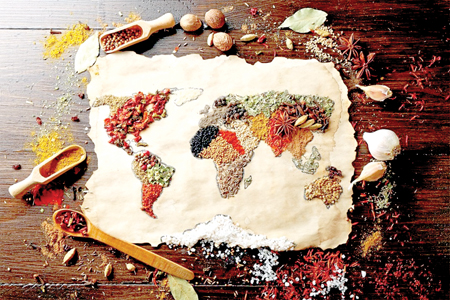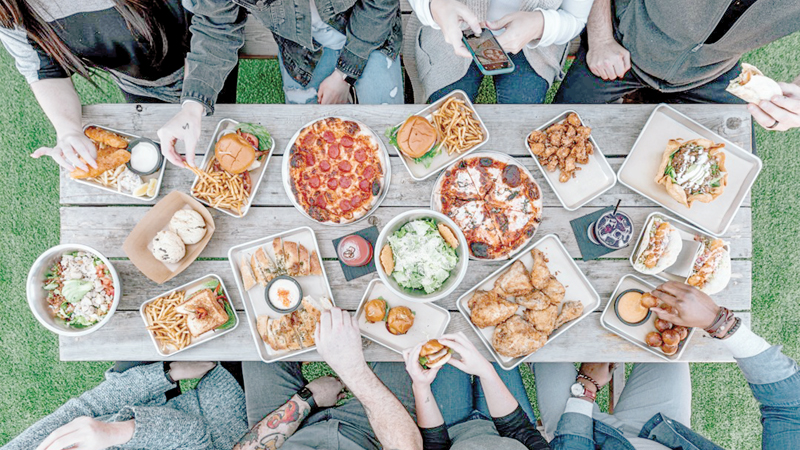It’s easy to forget, in the middle of a busy life, that food is more than fuel. What we eat builds our bones, fires up our minds, affects our moods, and even shapes how we age. It’s not a slogan or a wellness fad—our bodies are made, cell by cell, from the food we put on our plates. We really are what we eat.
This doesn’t mean food must be fancy. It means it must be real. What we choose every day—lentils or chips, greens or sugary drinks—adds up.
Our immune systems, energy levels, and even our sleep patterns reflect our diets more than we realise. This isn’t about strict rules or superfoods. It’s about tuning in, choosing mindfully, and remembering that our meals aren’t just meals. They’re messages to the body: build, protect, energise and repair.
Plant-based food
Most people know we need protein. But many don’t realise just how essential it is—and how easy it is to fall short, especially for those eating mostly plant-based food. Proteins aren’t just for athletes or gym goers.
They’re the quiet builders behind every strand of hair, every heartbeat, every brain signal.
When we eat enough protein, we give our body the tools it needs to keep our muscles strong, our skin supple, and our immune system on alert. And no, we don’t need meat at every meal to meet our protein needs.
Pulses, nuts, seeds, tofu, peas, chickpeas, and even humble oats—these plant-based staples offer enough protein when eaten in variety and in the right quantities.
Vegetarians and vegans sometimes forget to build their meals around protein. A bowl of rice or a salad might look healthy, but without a bean curry or a handful of lentils, it won’t do the repair work the body quietly demands every day.
For growing children, women during pregnancy, older adults, and those recovering from illness, getting enough protein becomes even more important.
May 30 marks World Potato Day—a quiet nod to one of the world’s most underrated foods. The potato gets a bad rap because of how it’s often cooked: deep-fried, slathered in butter, or loaded with cream. But boiled, steamed, or roasted with minimal oil, potatoes are nutrient-rich, satisfying, and versatile.
Potatoes are a source of complex carbohydrates, the kind that keeps energy levels steady. They’re rich in vitamin C, potassium, and fibre, especially if you eat the skin. And in many cultures—from Peruvian highlands to Irish farms—this humble tuber has kept families fed for centuries.
Baked potato
The key is preparation. A baked potato with a dollop of spiced hummus or a chickpea curry makes a balanced meal. Fries and chips? Not so much. Let’s not blame the potato for what happens in the deep fryer.
 Travel the world on a plate, and you’ll find that some of the healthiest diets are deeply plant-based. In Japan, miso soup, tofu, seaweed, and vegetables form the core of daily meals. In India, lentils, millets, rice, and spiced vegetables are common. Ethiopia celebrates injera—a fermented flatbread—served with lentil stews and greens. The Mediterranean diet, full of olive oil, beans, fresh vegetables, and whole grains, is now widely praised for its heart benefits.
Travel the world on a plate, and you’ll find that some of the healthiest diets are deeply plant-based. In Japan, miso soup, tofu, seaweed, and vegetables form the core of daily meals. In India, lentils, millets, rice, and spiced vegetables are common. Ethiopia celebrates injera—a fermented flatbread—served with lentil stews and greens. The Mediterranean diet, full of olive oil, beans, fresh vegetables, and whole grains, is now widely praised for its heart benefits.
None of these diets rely heavily on meat. Instead, they make vegetables the star, treat legumes with respect, and use spices to bring flavour without loading up on sugar or fat. Traditional diets often carry the wisdom of generations. They evolved out of necessity, yes, but also out of deep understanding of what the body needs to thrive.
Sadly, fast food and ultra-processed snacks have started to edge out traditional eating in many places. But if we look at what our grandparents ate—not just what they cooked, but how they ate—we might learn something important. They ate at home. They ate together. They ate what was in season. And they respected food, because they knew what it took to grow it.
There’s something beautiful about a bowl of dhal, a warm vegetable stir-fry, a slice of wholegrain bread with hummus, or even a simple banana with peanut butter. These are meals that nourish without draining the planet.
Plant-based foods, when varied and thoughtfully chosen, give us fibre, antioxidants, vitamins, and minerals in ways processed foods cannot. Whole grains give us sustained energy. Vegetables help fight inflammation. Nuts and seeds provide good fats. Legumes are the protein powerhouses.
Unlike highly processed foods that spike blood sugar and leave us craving more, whole plant-based meals keep us full, stabilise our mood, and support long-term health. They also require fewer resources to produce, making them better for the planet.
And no, eating plant-based doesn’t mean saying goodbye to flavour. Indian chana masala, Thai green curry, Mexican black bean tacos, Middle Eastern mujadara—all deeply rooted in culture, all plant-forward, all full of life and taste.
Food isn’t just nutrition
Ask someone about their favourite meal, and they’ll rarely talk about calories. They’ll talk about their mother’s cooking, a dish from childhood, a festival spread. Food is personal. It’s how we celebrate, how we connect, how we pass on love.
That’s why it matters to slow down and eat with awareness. To cook when we can. To choose ingredients that come from the earth, not a laboratory. Every meal is a chance to honour the body, the soil, and the hands that grew the food.
You don’t need a degree in nutrition to eat well. Just a little attention, some curiosity, and a return to the basics. What did your ancestors eat? What’s in season right now? What’s growing near you? These questions matter more than macros.
Start your day with oats, not cereal out of a box. Add a spoon of peanut butter or a handful of seeds. For lunch, maybe a lentil soup or a chickpea salad. Keep roasted vegetables in your fridge. Snack on fruit or nuts. Why don’t you try cooking one new plant-based dish every week. Learn to use spices. Use oil wisely. Drink more water.
You don’t have to overhaul your whole life overnight. But every time you swap soda for water, or fries for roasted sweet potatoes, or white bread for brown rice—you vote for your health. Small choices, over time, add up.
The bottom line
We live in a world full of quick fixes, diet trends, and wellness noise. But deep down, we all know the truth. Real food, made with care, eaten without distraction, and rooted in plants, is what our bodies have always needed.
We don’t need to become food purists. But we do need to wake up to what’s on our plates. Our bodies are listening. Our minds are responding. The journey to better health doesn’t begin in a gym. It begins in the kitchen, with one good choice.
So, this World Potato Day, maybe honour the humble tuber with a home-cooked meal. Maybe pause and ask: is what I’m eating building the version of me I want to be? And maybe, just maybe, remember—food isn’t just what we eat. It’s who we are.






